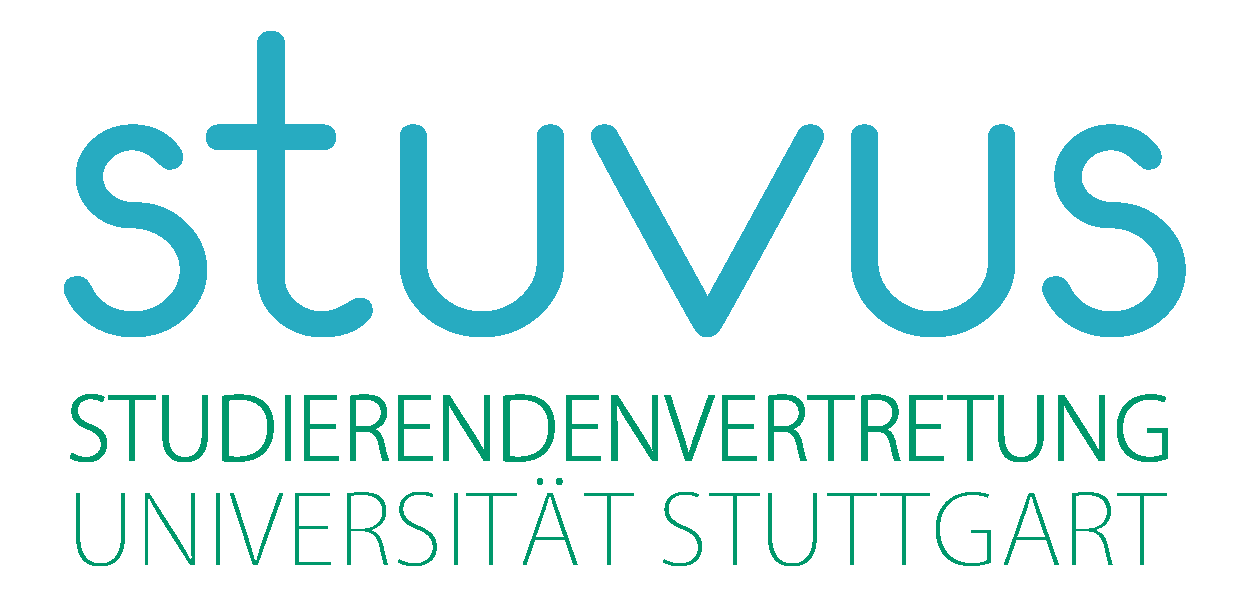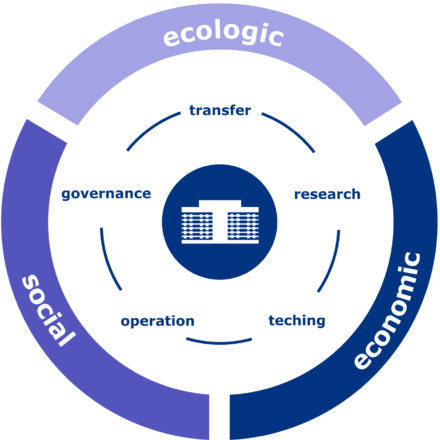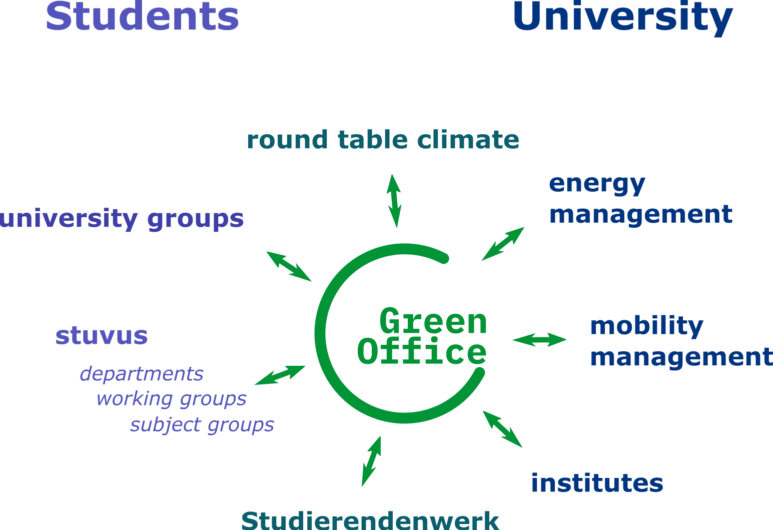What is sustainability?
There is no clear definition of “sustainability”. In the past, various approaches were developed in order to describe sustainability. The Brundtland report, published in 1987, defines a sustainable development as follows:
Sustainable development meets the needs of the present without compromising the ability of future generations to meet their own needs.
In general, sustainability comprises three dimensions: ecology, economy and society. Besides the economical point of view, ecological aspects should be considered as well during decision making as well as in legislation. This is necessary in order to keep human acting within the so-called planetary boundaries and in order to secure a sustainable development. Additionally, a social equality between following generations as well as within every generation should be created, particularly in respect of the poorer people in the global community. This idea also forms the basis of the 17 UN Sustainable Development Goals (SDGs, goals for sustainable development of the United Nations), which were adopted in 2015 for 15 years and summarized in the Agenda 2030.
In the following, we will focus primarily on the ecological dimension of sustainability, as this is where we believe there is the greatest need for action.
Why is Sustainability Important For Us – the Student Council of the University of Stuttgart?
Universities have a special role to play in achieving the Sustainable Development Goals. The German Rectors’ Conference formulates it in its recommendation letter “Für eine Kultur der Nachhaltigkeit” (engl. “For a Culture of Sustainability” as follows (own translation):
Universities are the laboratories of society’s future. By combining research and teaching, they can help future generations master complex challenges in a globalized world (Grand Challenges). They take on the task of sensitizing all university members to sustainable development and engaging them to contribute to shaping a sustainable society.
The University of Stuttgart has set itself a new strategic goal as part of its structural and development plan (SEPUS 2021-2025), which is also aligned with the SDGs (quote from the preliminary draft of the SEPUS, own translation):
Active for Sustainable Development
The University of Stuttgart aims for sustainable development in research and teaching as well as in all university operations and in cooperation with its partners. In its orientation, it is guided by the major challenges of our time and, in exchange with society, develops innovative contributions that also take into account the conditions and needs of future generations.
We – the student representation of the University of Stuttgart – also would like to contribute to the Sustainable Development Goals within the scope of our possibilities and our rights. We see the climate crisis as one of the greatest challenges and will therefore take climate protection into account in our decisions in an appropriate manner. We have summarized our assessments, demands and goals regarding the climate crisis in a separate position paper (German only):
According to § 65 III LHG (State University Act), one of our tasks is to “also take a position on such issues that deal with the social mission of the university, its contribution to sustainable development, as well as the application of scientific knowledge and the assessment of its consequences for society and nature” (own translation). Accordingly, we would like to use our channels such as this website to inform about sustainability and the current projects and activities at the university and within the student body.
Sustainability at Universities
As a cross-cutting issue, sustainability at universities is not limited to research and teaching. In line with the wide-ranging sustainability goals of the UN, a whole-institution approach to sustainability is appropriate for higher education institutions (cf. UNESCO, 2014, p. 30). Such a whole-institution approach considers the substantive relevance of sustainability as a development goal at all institutional levels: Here, in addition to teaching and research, governance, operations and transfer should be mentioned as interlocking and partly overlapping fields of action.
In the following definitions, we refer to the HOCHN guidelines (German only). HOCHN was a joint project funded by the BMBF to promote sustainable development in the sense of the Sustainable Development Goals at German universities and universities of applied sciences.
Research:
Through targeted research, universities can generate insights into global humanitarian development in the direction of sustainability. In this way, they play a key role in the transformation to a sustainable society.
More information: HOCHN guideline about Research (German only)
Teaching:
Education for Sustainable Development (ESD) enables people to think and act in a sustainable way, i.e. to understand the impact of their own actions on the local environment and on people in other parts of the world, to be able to imagine the impact on future generations, and to make responsible decisions based on this. ESD is also about empowerment as a change agent in the transformation to more socially equitable and ecologically inclusive societies. ESD is not primarily an additional learning content, but shows itself particularly in changed methods of knowledge and competence transfer.
More information: HOCHN guideline about Teaching (German only)
Operations:
Universities – just like schools, public authorities, companies and other institutions – are organizations whose day-to-day operations have direct and indirect impacts in ecological, economic and social terms. Sustainable university operations are not always a given and sometimes conflict with legal requirements (e.g. “freedom of research” if research fields are very energy-intensive).
More information: HOCHN guideline about Operations (German only)
Governance:
Advancing sustainable development at universities is a complex issue that requires good coordination between the actors and authoritative decisions. The task of coordinating these processes in an orderly manner is referred to as “governance”.
More information: HOCHN guideline about Governance (German only)
Transfer:
Transfer is understood as the mutual and cooperative exchange of knowledge, ideas, services, technologies and experiences between universities and external actors from business, politics, the public sector, culture and civil society at eye level. When it comes to transfer of higher education institutions for sustainable development – in short: sustainability transfer – an explicit positioning of the activities and actors for sustainability is required. The goal of sustainability transfer is to contribute to sustainable development in society.
More information: HOCHN guideline about Transfer (German only)
Structures on Sustainability at the University of Stuttgart
In recent years, many different groups and structures have formed around the area of sustainability at the University of Stuttgart. Especially on the student side, there are many university groups that deal with the topic in different ways. We have listed them below in the section “University Groups”. Within stuvus, there is the department for sustainability, which takes on a coordinating and networking role and, in particular, initiates larger and cross-group projects. Sustainability is also becoming increasingly important as a cross-cutting issue in the other departments, the working groups, and the subject groups (“Fachgruppen”).
On the university side, there is the energy management, which tries to make the university more sustainable through energy optimizations and renovations. In teaching, there are also several courses that deal with sustainability and the socio-ecological challenges. The Studierendenwerk is trying to recycle waste and emit fewer emissions through sustainable waste management in the residence halls and more sustainable catering in the dining halls. Many institutes are conducting research on sustainability and renewable energy. Wind power, photovoltaics, mobility, spatial planning, wastewater and waste management, insulation, sustainable materials and much more are the topics being researched at the University of Stuttgart. Especially the ZIRIUS as a center for interdisciplinary risk and innovation research for sustainable societies, the HLRS which is EMAS certified as well as the IZKT as a forum for and inter- and transdisciplinary exchange are to be mentioned here.
At the University of Stuttgart there is also a mobility management, which currently coordinates the Mobility Living Lab (MobiLab). The goal is an emission-free campus as a research and innovation lab, as a pioneer for low-emission mobility with a high quality of stay. It also leads the “Stuttgart fährt mit” initiative.
Since 2020, the Round-Table Climate (“Runder Tisch Klima”) has existed as an advisory body consisting of parties from all areas such as initiatives, interested students and employees.
Through student initiative, a working group consisting of students and employees of the university was formed, which developed the largest structural anchoring of sustainability at the University of Stuttgart to date, the Green Office. It consists of two sustainability managers, a mobility manager, an energy manager, student employees and the commitment of numerous people who want to work together with the Green Office for a more sustainable university. The official kick-off of the Green Office took place on June 24, 2021.
Department for Sustainability
The stuvus department for sustainability plays a central role in student sustainability engagement at the University of Stuttgart. The projects, the team and further information about the department are listed on the department page:
Department for Sustainability
Working Groups
There are a number of working groups within stuvus that belong directly to the Sustainability Department or have a sustainability connection. By clicking on a name, further information on the respective working group is displayed.
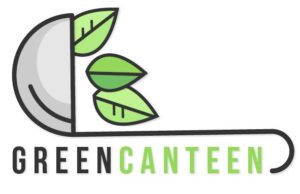
Green Canteen has the vision to make everyone’s diet more sustainable, animal-friendly and healthy. With the self-created flyers and the Instagram channel, Green Canteen provides information and has already been able to reach many students and sensitize them to the topic. The working group is in regular exchange with the Studierendenwerk Stuttgart and has thus been able to achieve some improvements in the university canteens and cafeterias. These include, in particular, the introduction of a plant-based milk alternative at the coffee machines and a daily vegan main course.
- Website: https://greencanteen.stuvus.uni-stuttgart.de/en/startseite-en/
- Instagram: https://instagram.com/greencanteen0711
- E-mail address: green-canteen@stuvus.uni-stuttgart.de
The MitMachGarten has been a part of university life for over 5 years now and for many it is difficult to imagine the campus without it. Between a parking lot, residential buildings and institutes, strawberries and salads grow in raised beds, tomatoes at the “Monte Pomodoro”, potatoes in rice bags, herbs and shrubs, and a huge variety of other delicacies. The garden is open to everyone, so that everyone is invited to harvest anything and everything at any time, to grow and share something themselves. In the midst of the grey daily routine of learning, a space for sustainability, creativity and alternative ideas is supposed to be created. And the committed people, whether students, residents or employees, have always been the heart of the MitMachGarten – so the name simply couldn’t be more fitting.
Regular garden meetings invite you to actively discuss about gardening, studies or life in general. And there is no shortage of opportunities for craftsmanship. There is always something to repair, to design, to garden, to change, to build from scratch and enough space and material to let off some steam. Fresh air, sun and delicious fruit/vegetables included! The garden is also used for smaller, cosy parties or workshops. Every year, for instance, a summer party takes place in the garden and quite a few common construction evenings end with music and cold drinks.
- Website: stuvus.de/mitmachgarten
- E-mail address: ak-mitmachgarten@stuvus.uni-stuttgart.de
The working group “Campus Bienen” is looking after and caring for three colonies of honey bees in our own small beehut on the Vaihingen Campus. As industrious as the bees are, as much we have to care for and manage them.
The season begins in spring as soon as our little ones come out of hibernation and ends in autumn with their winter preparations. Highlights of the year are the swarming season in early summer, the period in which the beehives multiply, and of course the honey harvest, where everyone is rewarded for their efforts. In the lazy winter months we prepare and train ourselves for the next season. The cold months are also the perfect time to brew some honey mead.
We all started as amateurs, but have a few professionals from the trade with us. We teach each other and through practice the art of beekeeping. There is a lot to learn!
If you are also interested in, or maybethinking about getting a colony yourself, or just want to get away from your screen and go out into nature, then you are in the right place. We always approach all tasks as a group, so everyone has the opportunity to do and learn everything.
- Website: stuvus.de/campusbienen
- E-mail address: ak-campusbienen@stuvus.uni-stuttgart.de
Since the summer semester 2018, stuvus has its own bicycle repair shop, which is supervised by the AK Fahrradwerkstatt. The idea behind the stuvus bicycle shop is to give students of the university the opportunity to carry out minor repairs on their bicycles on site by providing tools. There is always someone from the AK Fahrradwerkstatt on site, who takes care of the repair, gives tips, hands out tools and sells spare parts. Spare parts are sold to the students at cost price, the use of the tools costs nothing.
- Website: stuvus.de/fahrradwerkstatt
- E-mail address: ak-fahrradwerkstatt@stuvus.uni-stuttgart.de
The AK International Green Group is strongly involved in the dormitories on the Vaihingen campus in order to establish a functioning waste separation in the dormitories. The AK is part of the Department for the Studierendenwerk.
Student University Groups
Here some university groups are listed, which can be assigned to the (ecological) sustainability area (as of September 2022). By clicking on a name, further information on the respective group is displayed. Currently, only German-language university groups exist in the field of sustainability. However, since 2020 there is an international working group “International Green Group” within stuvus, which takes care of waste separation in the dormitories.
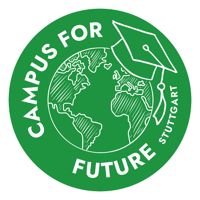
Campus for Future ist ein hochschulübergreifendes Bündnis aus Hochschulgruppen und Einzelpersonen, die sich für Klimaschutz auf den Campi einsetzen möchten. Als Hochschulgruppe “Campus for Future an der Universität Stuttgart” ist sie an der Uni Stuttgart anerkannt.
- Website: campusforfuture.de
- Facebook: facebook.com/CampusForFutureStuttgart
- Instagram: instagram.com/campusforfuturestuttgart
- Telegram News-Channel: t.me/cff_news
- E-Mail-Adresse: info@campusforfuture.de

Crossing Borders setzt sich für die Verbreitung von Wissen um Erneuerbare Energien ein.
- Website: www.cbs-ev.org
- Facebook: facebook.com/CrossingBordersStuttgart
- Instagram: instagram.com/cbs_ev
- E-Mail-Adresse: info@cbs-ev.org

Infinity veranstaltet Vorträge und Workshops und versucht durch kleine Veränderungen Nachhaltigkeit in den Alltag zu integrieren.
- Facebook: facebook.com/InfinityStuttgart
- Instagram: instagram.com/infinitystuttgart
- E-Mail-Adresse: info@infinity-stuttgart.de

Die Umweltgewerkschaft Hochschulgruppe führt Umweltschutz- und Aufklärungsaktionen durch.
- Website: umweltgewerkschaft.org
- Facebook: facebook.com/UmweltgewerkschaftHGStuttgart
- E-Mail-Adresse: Umweltgewerkschaft-HG-Stuttgart@gmx.de
Knowledge Management
In the student environment, there are naturally often personnel changes. Knowledge management is therefore very important, but not exactly easy. In a public wiki, where everyone has read and write access, we would like to try to collect as much information as possible to make it easier to get started with sustainability engagement at the University of Stuttgart:
https://wiki.stuvus.uni-stuttgart.de/display/NV/Nachhaltigkeitsengagement+an+der+Uni+Stuttgart
On our activities page you will find an overview of sustainable projects that are taking place at our university.
If you want to learn more on how to make your own everyday life more sustainable, you can have a look at our recommendations page.
